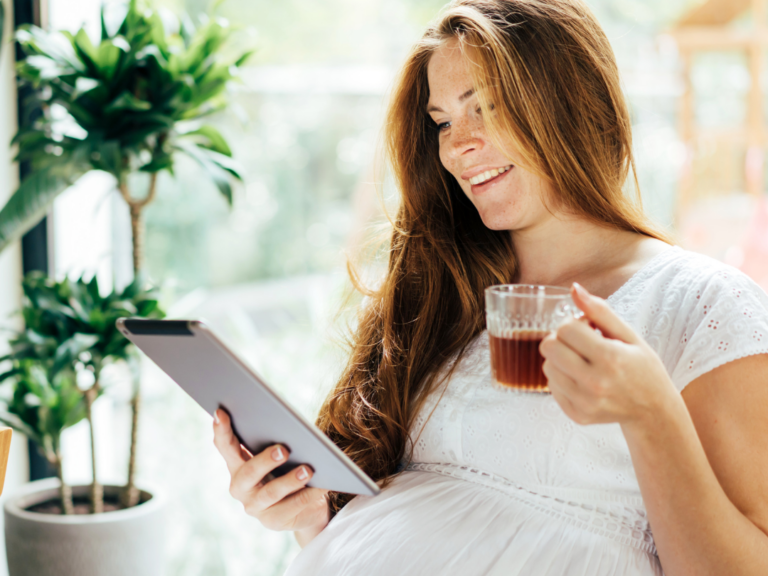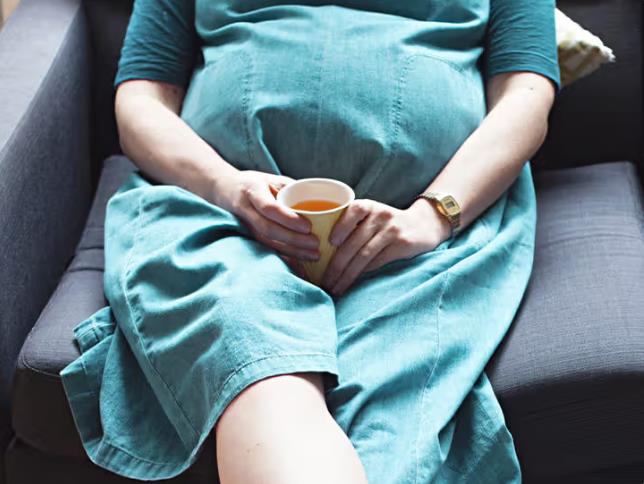Content Menu
● Understanding Green Tea Extract
● Benefits of Green Tea Extract
● Risks Associated with Green Tea Extract During Pregnancy
● Guidelines for Consumption
● Nutritional Considerations During Pregnancy
● Conclusion
● FAQ
>> 1. Is it safe to drink green tea during pregnancy?
>> 2. Can green tea affect folic acid absorption?
>> 3. What are the risks of high caffeine intake during pregnancy?
>> 4. Should I avoid green tea entirely during pregnancy?
>> 5. What are safer alternatives to green tea?
● Citations:
Pregnancy is a time of significant change for a woman's body, and the choices made during this period can have lasting effects on both the mother and the developing fetus. One area of concern is the consumption of various substances, including herbal teas and extracts. Among these, green tea extract (GTE) has gained popularity due to its health benefits, but questions remain regarding its safety during pregnancy. This article aims to explore the safety of green tea extract during pregnancy, examining both potential benefits and risks.

Understanding Green Tea Extract
Green tea extract is derived from the leaves of the *Camellia sinensis* plant and is rich in polyphenols, particularly catechins like epigallocatechin gallate (EGCG). These compounds are known for their antioxidant properties and potential health benefits, including weight loss, improved heart health, and reduced risk of certain diseases. However, the concentration of these compounds in extracts can be much higher than in brewed tea.
Benefits of Green Tea Extract
1. Antioxidant Properties: The high levels of antioxidants in green tea extract can help combat oxidative stress, which is particularly important during pregnancy when oxidative stress can affect both maternal and fetal health.
2. Anti-inflammatory Effects: Some studies suggest that GTE may reduce inflammation, which could be beneficial for pregnant women experiencing inflammatory conditions.
3. Weight Management: For those struggling with weight gain during pregnancy, moderate consumption might help manage weight without resorting to unhealthy diets.
4. Improved Metabolism: GTE may enhance metabolic rates, which can be advantageous for overall health.
5. Potential Neuroprotective Effects: Some research indicates that components in green tea may have neuroprotective effects that could benefit fetal brain development when consumed in moderation.
Risks Associated with Green Tea Extract During Pregnancy
While there are potential benefits to consuming green tea extract during pregnancy, there are also significant risks that must be considered:
1. Caffeine Content: Green tea contains caffeine, which can cross the placenta. High caffeine intake during pregnancy has been associated with increased risks of miscarriage and low birth weight. The American College of Obstetricians and Gynecologists recommends limiting caffeine intake to 200 mg per day during pregnancy.
2. Folic Acid Absorption: Studies have indicated that catechins in green tea may inhibit the absorption of folic acid, a crucial nutrient for fetal development. Insufficient folic acid can lead to neural tube defects in the developing fetus. Research shows that heavy consumption (more than three cups per day) can significantly lower folate levels in pregnant women[1].
3. Potential Toxicity: Research has shown that high doses of green tea extract may lead to adverse effects such as liver toxicity and developmental issues in animal studies. Although these findings are not directly translatable to humans, they raise concerns about high-dose supplementation[2].
4. Pro-inflammatory Effects: Some studies suggest that maternal consumption of GTE may induce a pro-inflammatory status in both mothers and offspring, potentially affecting metabolic health later in life[7].
5. Dose-Dependent Effects: The effects of green tea extract are dose-dependent; while moderate doses may offer benefits, higher doses can lead to various adverse effects such as reduced fetal body weight and neuronal degeneration[2][10].

Guidelines for Consumption
Given the potential risks associated with green tea extract during pregnancy, it is essential to approach its consumption with caution:
- Moderation is Key: If you choose to consume green tea or its extracts during pregnancy, limit intake to one or two cups per day to stay within recommended caffeine limits.
- Consult Healthcare Providers: Always discuss any supplements or dietary changes with your healthcare provider to ensure they are safe for your specific situation.
- Focus on Whole Foods: Instead of relying on extracts or supplements, consider incorporating whole foods rich in antioxidants into your diet.
Nutritional Considerations During Pregnancy
Maintaining a balanced diet is crucial during pregnancy. Pregnant women require additional nutrients to support their health and the development of their fetus:
- Folic Acid: Essential for preventing neural tube defects; found in leafy greens, legumes, and fortified cereals.
- Iron: Important for increased blood volume; sources include lean meats, beans, and fortified cereals.
- Calcium: Necessary for fetal bone development; found in dairy products and fortified plant milks.
- Omega-3 Fatty Acids: Vital for brain development; sources include fish (low in mercury), flaxseeds, and walnuts.
- Hydration: Adequate fluid intake is essential; aim for at least 8-12 cups of water daily.
Conclusion
The safety of green tea extract during pregnancy remains a complex topic. While moderate consumption may offer some benefits, the associated risks—particularly concerning caffeine intake and folic acid absorption—cannot be overlooked. Pregnant women should prioritize safety by moderating their intake and consulting healthcare professionals before making any significant dietary changes.

FAQ
1. Is it safe to drink green tea during pregnancy?
Yes, moderate consumption (1-2 cups per day) is generally considered safe, but it's essential to monitor caffeine intake.
2. Can green tea affect folic acid absorption?
Yes, catechins in green tea may inhibit folic acid absorption, which is crucial for fetal development.
3. What are the risks of high caffeine intake during pregnancy?
High caffeine intake has been linked to increased risks of miscarriage and low birth weight.
4. Should I avoid green tea entirely during pregnancy?
Not necessarily; moderate consumption is typically safe, but consult your healthcare provider for personalized advice.
5. What are safer alternatives to green tea?
Herbal teas such as ginger or peppermint are often recommended as safer alternatives during pregnancy.
Citations:
[1] https://mothertobaby.org/baby-blog/should-pregnant-women-get-the-green-light-to-drink-green-tea/
[2] https://pmc.ncbi.nlm.nih.gov/articles/PMC8324952/
[3] https://efsa.onlinelibrary.wiley.com/doi/10.2903/j.efsa.2018.5239
[4] https://www.hopkinsmedicine.org/health/wellness-and-prevention/nutrition-during-pregnancy
[5] https://spokaneobgyn.com/blog/latest-news/dietary-supplements-during-pregnancy/
[6] https://www.nhs.uk/pregnancy/keeping-well/have-a-healthy-diet/
[7] https://journals.plos.org/plosone/article?id=10.1371%2Fjournal.pone.0199969
[8] https://www.webmd.com/vitamins/ai/ingredientmono-960/green-tea
[9] https://www.acog.org/womens-health/faqs/nutrition-during-pregnancy
[10] https://pmc.ncbi.nlm.nih.gov/articles/PMC6051583/






























